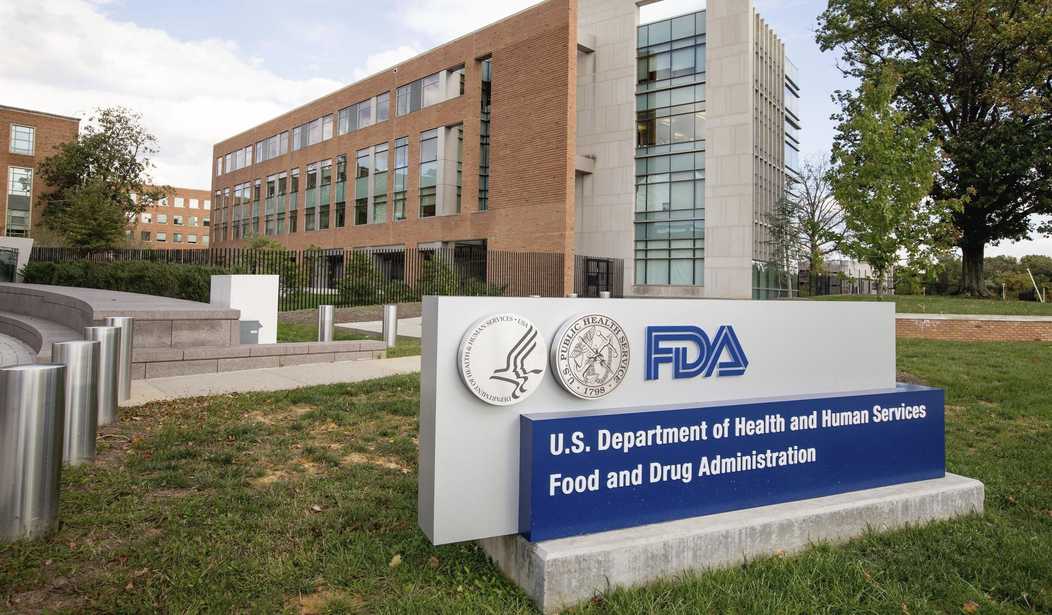The Food and Drug Administration wants to prevent smoking-related deaths by making cigarettes less appealing. Toward that end, the FDA plans to ban menthol cigarettes and limit nicotine content to "reduce the addictiveness of cigarettes."
Meanwhile, the FDA seems determined to make vaping products, the most promising harm-reducing alternative to cigarettes, less appealing to smokers. The perverse combination of these two regulatory strategies would undermine public health in the name of promoting it.
The ban on menthol cigarettes, which the FDA proposed in April, is not based on evidence that they are uniquely dangerous. Instead, the agency argues that menthol cigarettes are more addictive, especially for Black smokers, who overwhelmingly prefer them.
The evidence on that score is shaky, and so is the condescending assumption that African Americans are helpless to resist menthol's minty coolness or the marketing that touts it. Worse, the proposed ban would promote illegal production and distribution, inviting a law enforcement response that would disproportionately hurt the people the agency claims it is trying to help -- a point the FDA implicitly concedes by alluding to the policy's "racial and social justice implications."
Mandating a reduction in nicotine content to "minimally" addictive or "non-addictive" levels, which the FDA says it will propose, likewise raises obvious problems. That policy also would spur black-market activity, and it would encourage current consumers to smoke more, which hardly seems consistent with the agency's avowed goals.
The same could be said of the FDA's refusal to approve vaping products in flavors other than tobacco. Although the agency views nontobacco flavors as dangerously enticing to teenagers, surveys indicate that the vast majority of former smokers who vape favor them.
Recommended
A 2019 analysis of data from the Population Assessment of Tobacco and Health Study found that three-quarters of past-month adult vapers, 93% of whom were current or former smokers, preferred flavors other than tobacco. Furthermore, "former smokers who (had) completely switched to an e-cigarette" were especially likely to have "transitioned from a tobacco flavored product to a non-tobacco flavored product."
So far the FDA has issued "marketing approval orders" for just four brands of vaping products, all of them in tobacco flavors. Last month, the agency issued "marketing denial orders" to Juul, a major vaping company that had sought approval for menthol as well as tobacco pods.
The FDA said the rejection of Juul's applications was based on inadequate toxicological data, a claim the company disputes. Juul obtained a temporary court order that bars the FDA from stopping the sale of its products while the case is pending.
Beyond that specific controversy, the FDA has rejected millions of applications for vaping products in nontobacco flavors, including menthol. Yet its cost-benefit analysis of the proposed ban on menthol cigarettes assumes the availability of e-cigarette alternatives.
As Competitive Enterprise Institute senior fellow Michelle Minton points out, the FDA relies on a study in which "the substitution of high-risk combustible menthol cigarettes for lower-risk menthol-flavored nicotine vapor products ... accounts for approximately half of the benefits." How are menthol smokers supposed to make that switch if the FDA refuses to allow the sale of menthol-flavored e-cigarettes?
More generally, the FDA's bias against flavor variety is hard to reconcile with its concession that vaping has great potential to reduce smoking-related disease and death. An arbitrary ban on the flavors that adult consumers demonstrably prefer will drive some people back to smoking and discourage current smokers from switching.
Like a menthol cigarette ban and a nicotine limit, such flavor restrictions also would push consumers toward black-market suppliers, who are completely unconstrained by the FDA's supposedly enlightened regulations. The FDA apparently has learned nothing from the country's unhappy experience with the war on drugs.
As with other drugs, the most sensible approach to nicotine is harm reduction, which seeks to minimize both the harm caused by psychoactive substances and the harm caused by misguided government responses to them. The FDA seems oblivious to the latter.
























Join the conversation as a VIP Member